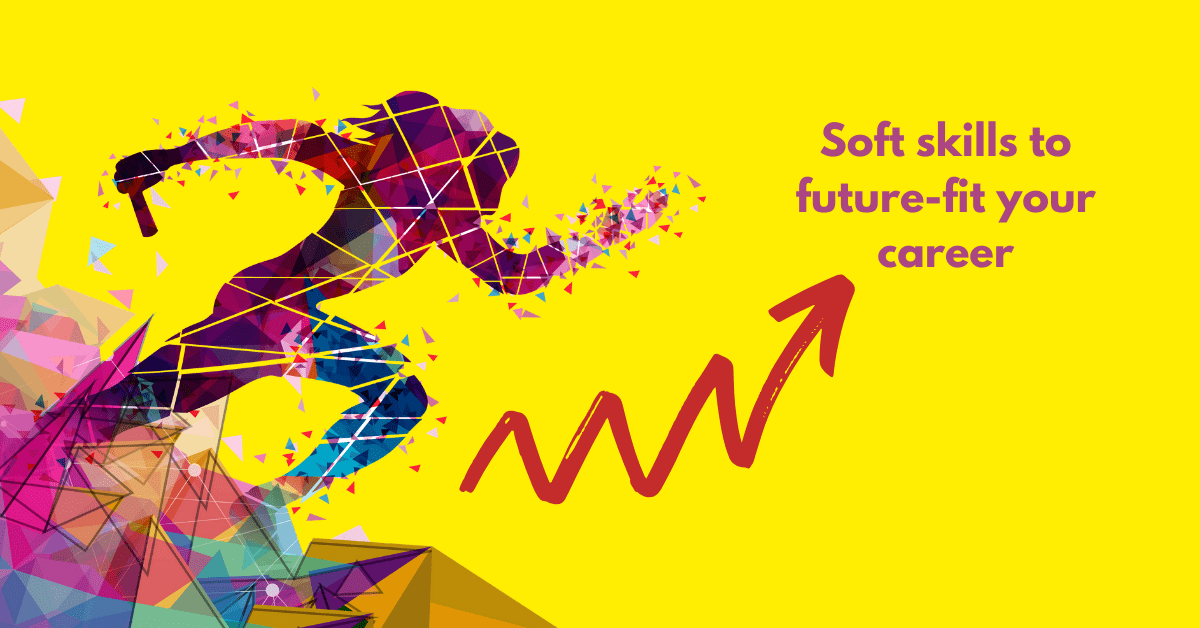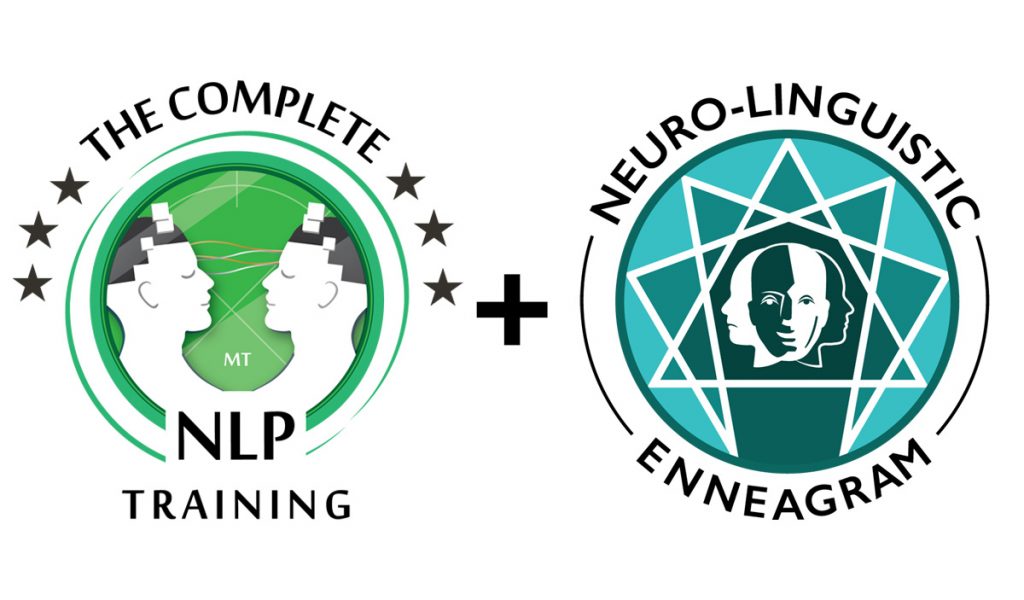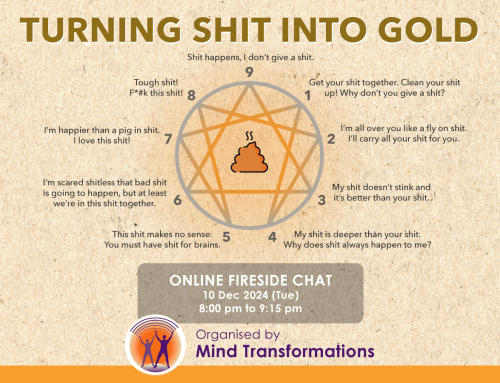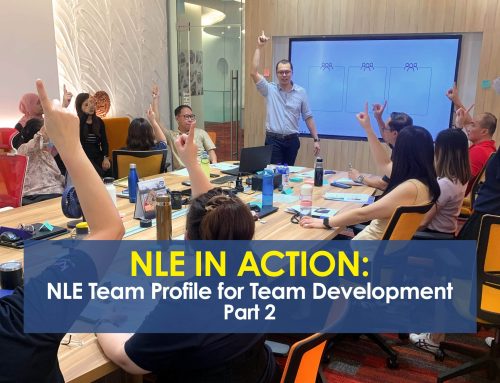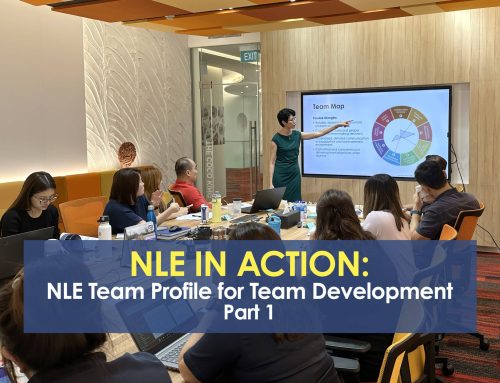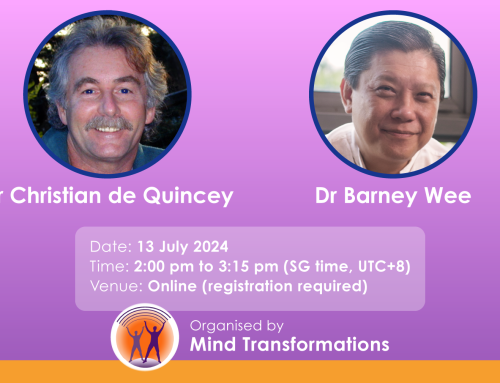Today, we face a lot of uncertainty and volatility concerning Singapore’s employment landscape. For both career seekers and organisations alike, the nature of work is shifting rapidly, given the impact of technology on jobs.
What are the underlying forces at work? How can you better develop your career and expertise to thrive in the future of work?
Emerging forces impacting your career in the future of work

In this new world of work, the greatest challenge is not the technology itself. It is about raising our human capabilities to bridge the gap between digital technologies and the workforce’s ability to apply coaching capabilities and soft skills to increase human capital. It includes our ability to harness artificial intelligence, analyse data, reinvent ourselves, implement innovation and lead multi-dimensional solutions to create sustainable impact.
With over 20 years of expertise in training, coaching and consulting, helping multiple companies and executives to produce transformational progress, here are some of the emergent shifts impacting the workforce in the future of work. They are also in alignment with the trends uncovered by firms such as Mckinsey & World Economic Forum:
New emerging markets
As more jobs get automated, new markets also appear and rise, such as in renewable energy. Which means, how can you expand and strengthen your transferable skills while upskilling to position yourself in emerging economies?
Diverse workforce
By 2030, there will be at least 300 million more people aged 65 years and older than there were in 2014. At the same time, younger generations of professionals will bring in different ambitions, mindset and talents. With technological platforms that enable us to work across boundaries, talents of different cultural backgrounds, education and experiences will come together in a sophisticated workplace. How can you effectively lead, communicate and collaborate in a multi-generational & diverse workplace?
Reinventing talents
Employees of the future will spend more time on work that technology is less capable of, such as managing, coaching and developing people, agile leadership, collaboration and influencing others. Which would mean, social and emotional skills and more advanced cognitive capabilities, such as complex thinking and creativity, will be in demand.
Leadership transformation
Apart from technology, as the environmental, health and social-economic landscape are shifting rapidly, job scopes and responsibilities of workers will frequently be changing to adapt. Which would mean, the way their performance is measured, in terms of KPI, will be radically transformed. Hence, leaders and managers would need to adopt a growth mindset and multi-dimensional approach to explore new directions for the organisation.
Taking a multi-dimensional approach to increase your career value

Distilling from the indications as mentioned earlier and observations, what would it all mean for your career development?
Your ability to drive your career growth to new heights will be determined by entirely new and different levels of thinking, working, communicating and being in the following three dimensions:
Growth Mindset
With the disruptive forces present in the future of work, you will become obsolete soon if you continue to operate with the mindsets of expecting a stable job or working to survive. Only by aligning yourself with purpose and value will you be able to thrive in the 4th or even 5th Industrial Revolution. Businesses and professionals are getting challenged more often than ever with long-ignored questions surrounding the notion of IMPACT – What is the value it brings to the world? As companies grapple this existential question, career seekers and builders who actively cultivate a mindset that is driven by values, purpose, and possibilities will lead the way forward.
Future-fit Skills
The ability to future-fit your career goes beyond technical competencies. With more decentralised platforms opening up to help people acquire the necessary domain skills in any given trades or profession, it isn’t enough to be equipped with those skillsets. The bottleneck for most professionals in their career growth lies in their future-fit skills. These skills are vital in order to advance and gain an unfair advantage in the marketplace. Future-fit skills are fast becoming essential skills, and are transferable across industries and job scopes. These include communication skills, self-mastery, and people-management skills. This is the area where many struggles to identify competencies clearly and facilitate the development of specific criteria. How can you develop a strategic system for developing, measuring and following-through critical skills to be future-fit in this VUCA world?
Self-leadership
To gain an unfair advantage, we need to take charge of our learning & development. We can no longer expect employers to send us for training programs to upgrade our skills. To successfully navigate and thrive in tomorrow’s employment landscape is about being proactive in your personal & professional development. It would involve proposing with your Human Resources to work out a collaborative skills development path that will enhance your career and contribute to your organisation’s growth.
Seven people skills to develop your career ecosystem for a thriving future
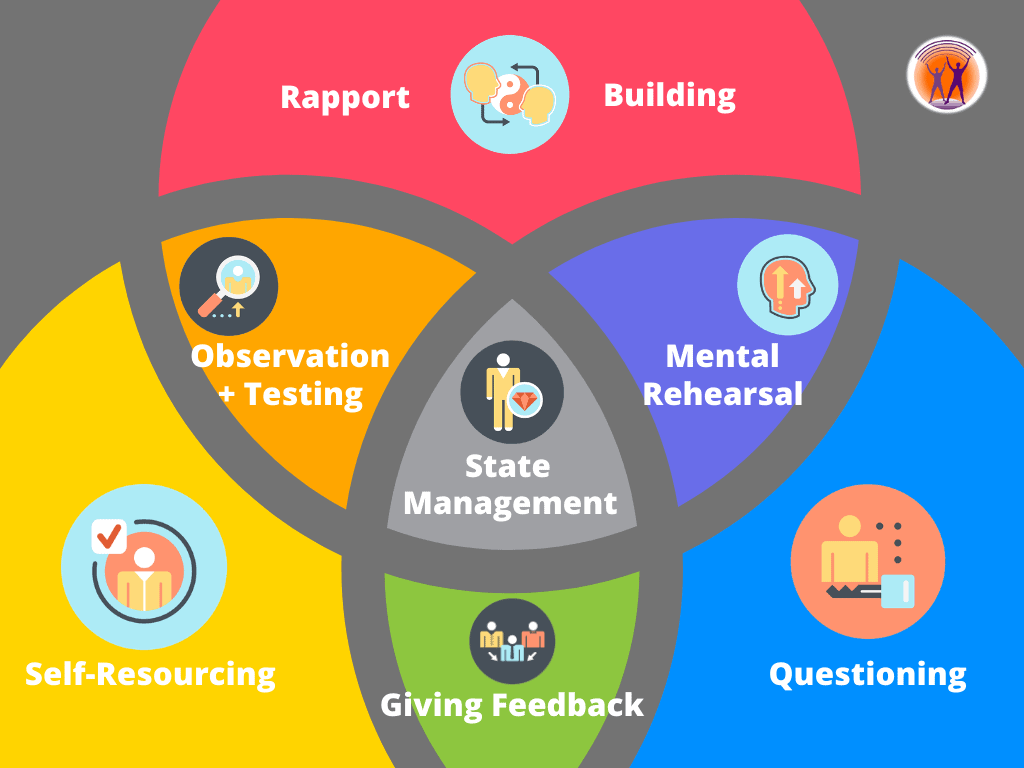
When it comes to your career, it isn’t always about having the most experience, qualifications or credentials; thriving isn’t a result of looking at one dimension alone. You need a career ecosystem of aligning your professional outcome, a network of coaches/mentors and accountability structures to support your efforts and help you move forward – particularly in light of today’s fast-changing business landscape.
To build your career ecosystem, here are three components:
Aligning your career purpose and outcome
What is the purpose of the work to you? What motivates you to wake up and show up each day? WHERE do you want to go and grow? What is the vision for your future self? What are the possibilities for the next direction or level of your career? Hopefully, you’re digging beneath the surface to go beyond the superficial ‘pay the bills’ response. From there, align them to your career outcomes in different timeframes that you can track and build accountability structure around it.
Strategic Plan
Once you’ve aligned your purpose and outcome, you’ll need a roadmap to help you actualise smaller wins. Remember, it’s a process and the objective is progress. Your plan doesn’t need to be elaborate or complicated – a list of high-leveraging activities and deadlines is all you’ll need to make the most of your investment, time and energy.
Develop value-driven relationships
Who’s in your network and how could they value add? Do you multiply the passion, purpose, performance and skills of your people at work or do you tear them down? This aspect is possibly the most crucial aspect of your career ecosystem. Your career ecosystem won’t be complete without your ‘tribe’ of coaches, mentors, connectors and collaborators who can help to ensure you keep moving forward with clarity, confidence, mastery and – most importantly – accountability.
Necessarily, there are seven vital human skills to enable you to supercharge your career’s ecosystem to thrive in the future of work.
These skills are necessary, not good to have, simply because THRIVING is the new way of operating for any business to continue in this VUCA world. Focus on being a multiplier in whatever you do to scale your efforts even with limited external resources.
These soft skills allow you as a professional to coach yourself and others towards a human-oriented growth MINDSET. When you start embodying those qualities at an individual level, you influence others at the workplace through critical stakeholders. As a result, you co-create a support system of development and hence a GROWTH CULTURE at the workplace is fostered. As the business landscape only gets more volatile, uncertain and complex, it is the workplace culture that will make a difference in building a sustainable & fulfilling career path.

State Management
It is about aligning your internal mental, emotional and physical states in a way that supports your performance and allows you to achieve peak performance. With an optimum state, you’ll be able to craft a compelling career narrative – weaving in your collective experiences, skills, and insights you’ve developed to shape your personal and professional identity. Your ability to manage your state also helps you harness the right opportunities by developing your personal/professional brand authentically – advocating your voice, values, and vision for the future in all that you think, feel, communicate and act.
To facilitate this, what are the distinguishing qualities about you that you need to instill in yourself to be at your optimum best?

Mental Rehearsal
When you can break your career plan down into a clearly articulated strategy, you can then rehearse it, so you know how to go about fulfilling it. Through strategic mental formulation, you’ll be able better to market & position your unique talents, skills and personality traits, clearly and comprehensively. It’ll enable you to facilitate the impact you want to make and establish your career presence.
To facilitate this, are you open-minded and humble enough to draw upon multiple perspectives from others and to embrace paradoxes?
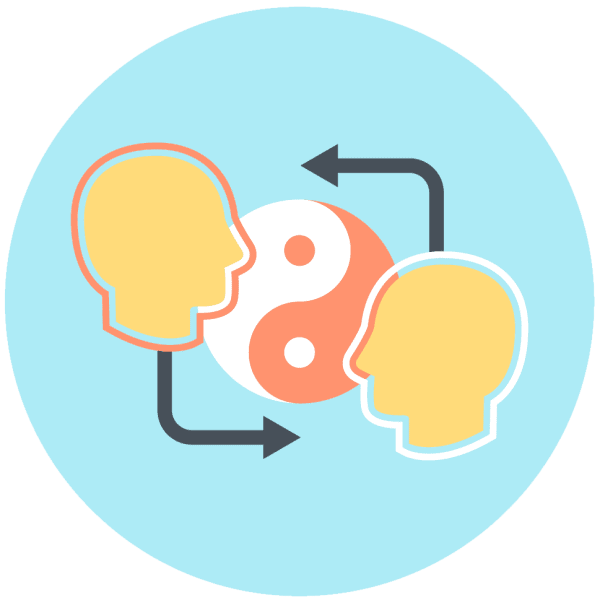
Rapport Building
It is a vital skill to establish deep human connections, build trusted networks and move key relationships forward. This ability will support you in growing a future-fit network to guide your onward journey by keeping you accountable and committed to long-term growth and success. Career advancement can accelerate when you tap the influence of the right people, apart from you merely relying on your skills, expertise and efforts. By working on other vital skills on top of rapport building, such as state management, you’ll be much effective speaking to the emotions of your people and get their buy-in.
To facilitate this, how can you demonstrate your leadership resourcefulness such that you have the capacity to take people and multiply their success?

Personalised feedback and feedforward
Today, we are not short of career resources and advice on the internet. Relying on them can’t make you go far and deep in your career advancement. You need customised feedback and feedforward that are constructive and valuable. Personalised feedback stems from close & subtle observation, especially that of a performance, and then presenting the information to enhance your learning and future delivery. All these help in co-creating a vibrant future career outcome (feedforward) with key stakeholders.
To develop mastery in this, are you able to take a group of people and help them work collaboratively and accomplish things collectively to surpass what they can do on their own?

Observation & Testing
To better respond in a VUCA career landscape, you’ll need to hone your communication, psychological and self-mastery skills by observations and to validate your approach. Together with previously mentioned skills, it is useful for providing a safe environment to ‘test’ & rehearse your career pitch, and gain real-time feedback and strategies to iterate and improve. Doing so increases your visibility and upscale your career proposition.
To hone this ability, know what to look out for such that you can drive change and innovation to establish preeminence in your network and organisation.

Questioning
As you evaluate your career possibilities based on the latest business and employment trends, emerging industries, or identified ‘gaps’ in the market, questioning helps you to align these opportunities to your career aspirations, goals, and development. Questioning also increases your confidence and clarity in taking calculated risks and strategic decisions that align to your values and career goals, to carve your path and see it through – with passion, purpose and presence.
When you are able to sharpen your questioning skills, new possibilities and angles open up for you that others fail to recognise.

Self-Resourcing
One of the NLP Presuppositions states that “We have the resources that we need to succeed.” Self-Resourcing is a skill set that equips us with the readiness to organise ourselves and our resources to be at our best in various situations, especially those that are volatile and uncertain. It empowers you to exercise your full potential – through whole-person development and healthy lifestyle practices to ensure the longevity and sustainability of your personal and professional advancement.
To develop this further, who and what do you need to become and what do you need to do differently in order to become a multiplier in your field of work?
Whether your next step is an internal promotion, industry switch, or starting a new venture, your career will only grow to the level of congruence with your self-mastery, professional identity, values and vision.
[inf_infusionsoft_inline optin_id=”optin_2″]

